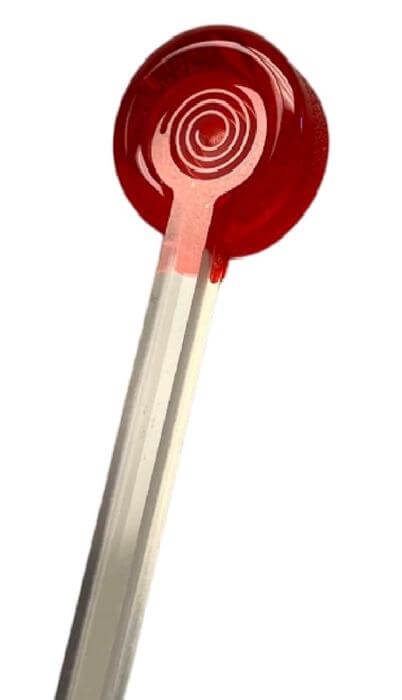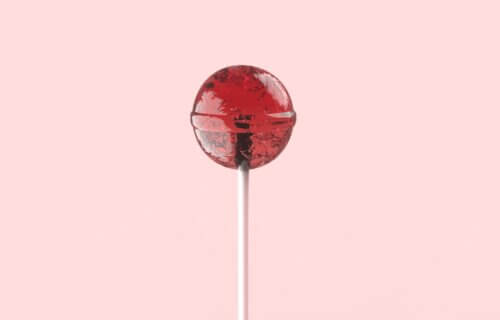SEATTLE — For decades, doctors have been giving lollipops to young patients after their visit. Now, these delicious treats could serve another purpose in the doctor’s office — diagnosing illnesses during a patient’s appointment.
For the first time ever, scientists have invented a lollipop-like device called CandyCollect that acts as a throat swab to collect saliva samples. The saliva is then processed and used to diagnose a number of diseases such as strep throat.
Traditional throat swabs are effective in collecting bacterial samples. However, a common complaint from patients is gagging. Saliva sampling taken from a person’s spit is an alternative to throat swabs. The sample is then analyzed using technology called quantitative polymerase chain reaction (qPCR) — a technique that became popular for at-home COVID testing. One issue, however, is the amount of spit a person needs to give for the exam. Collecting saliva with CandyCollect bypasses this messy process and the study authors suggest that people prefer drooling over the lollipop to spitting.
CandyCollect is designed to look just like a regular cherry lollipop. The main difference is its spoon-like stick and a spiral-shaped groove in the candy portion. The flattened end is shrouded with isomalt candy, which lets saliva flow easily in the groove as people suck on the lollipop.

Previous research using CandyCollect showed the device was capable of collecting bacteria related to strep throat. Hoping to expand on these findings, a team from the University of Washington expanded their testing to collecting and diagnosing bacteria connected to other conditions. They also tested how effective CandyCollect was in diagnosing respiratory illness compared to other at-home saliva sampling methods.
The research team sent out two saliva sampling kits and CandyCollect to 28 adults. The participants answered some survey questions, used each device to give saliva samples, and shipped the three devices back to the lab. The authors used qPCR to measure two types of bacteria: Streptococcus mutans which cause dental cavities and Staphylococcus aureus which indicate staph infections.
CandyCollect did a better job at identifying the two bacterial species than standard tests. When one or both of the saliva sampling kits detected the target bacteria, CandyCollect found it 100 percent of the time.
Amongst the study volunteers, researchers report that people preferred using CandyCollect because they felt it was the “most sanitary” and “least disgusting.” The devices, including CandyCollect, continued to work and provide accurate results up to a year. According to the authors, their adaptable and popular invention could inspire other ways of refining common medical tools.
The study is published in the American Cancer Society’s journal Analytical Chemistry.

